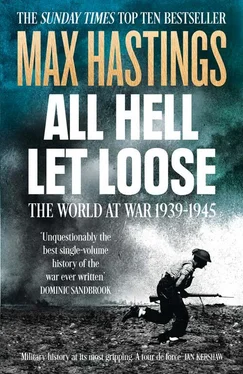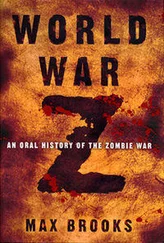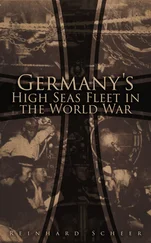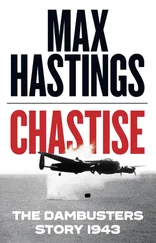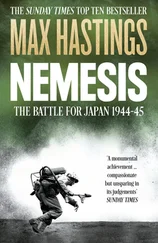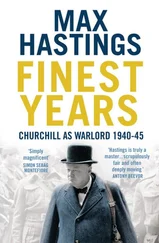In November 1939, the Norwegian Nobel Committee announced that, with much of Europe at war, it had decided to award no Peace Prize that year. Yet in the eyes of many British and French people, the collapse of Poland condemned to futility the struggle to which their governments had committed them. The French army, with a small British contingent in its traditional place on the left flank, confronted German forces on France’s eastern frontier. But the Allies had no appetite for offensive operations, certainly not until they were better armed. The Polish campaign had demonstrated the effectiveness of the Wehrmacht and Luftwaffe, though not yet their full power. Gen. Lord Gort, commanding the British Expeditionary Force, was appalled by the condition of some Territorial units which arrived in October to join his own five poorly equipped divisions. He said he had not believed it possible to see such a sight in the British Army: ‘The men had no knives and forks and mugs.’
Allied deployments were critically hampered by Belgian neutrality. It was assumed that if Hitler attacked in the west, he would reprise Germany’s 1914 strategy, advancing through Belgium, but King Leopold declined to offer Germany a pretext for invasion by admitting Anglo-French troops meanwhile. In consequence, the armies on the Allied left wing spent much of the icy winter of 1939 building defences on the French border which they intended to abandon, in favour of an advance into Belgium the moment the Germans attacked. The British, having only belatedly introduced conscription, possessed no large reserves of trained manpower for mobilisation, to match those of almost every Continental nation. Britain’s anti-militarist tradition was a source of pride to its people, but in consequence the nation declared war on the strongest power in Europe while capable of contributing only limited ground and air reinforcements to the French armies deployed against Germany. Any land initiative was dependent on the will of the Paris government. France had begun to rearm before Britain, but still awaited delivery of large orders of tanks and aircraft. The Allies were too weak either to precipitate a showdown with the Wehrmacht or to mount an effective air assault on Germany, even if they had the will for one. During the winter of 1939 the RAF staged only desultory daylight bomber attacks on German warships at sea, with heavy losses and no useful results.
Common sense should have told the Allied governments that Hitler was unlikely to delay a clash of arms in the west until they were adequately equipped to challenge him. Instead, perversely, they persuaded themselves that time was on their side. They sought to exploit their naval strength to enforce a blockade of the Reich. Gamelin spoke of launching a big land offensive in 1941 or 1942. The two governments clung to hopes that the German army and people would meanwhile ‘come to their senses’ and acknowledge that they could not sustain a protracted struggle. In Poland, so the Allies’ Panglossian thinking went, Hitler’s reckless territorial aggrandisement had achieved its last triumph: the Nazis would be overthrown by sensible Germans, then an accommodation could be sought with a successor regime.
The Allies formalised their joint decision-making through a Supreme War Council, of the kind that was established only in the final year of the previous European conflict. It was agreed that the British and French would share the cost of the war effort sixty-forty, proportions reflecting the relative size of their economies. France’s politics and policies were profoundly influenced by fear of the left, prospective tools of Stalin. In October 1939, thirty-five communist parliamentary deputies were detained in the interests of national security. The following March, twenty-seven of these were tried and most convicted, receiving prison sentences of up to five years. In addition, some 3,400 communist activists were arrested, and more than 3,000 foreign communist refugees interned.
Among the Allies’ mistakes in forging their strategy, insofar as they had one, was to focus upon strengthening their armed forces while conceding little attention to morale; ministers ignored the corrosive influence of inactivity on public sentiment. In the minds of many French and British people, the war effort seemed purposeless: their nations were committed to fight, yet were not fighting. The French were acutely sensitive to the economic strain imposed by sustaining 2.7 million men under arms. They urged on the British the virtues of action almost anywhere save on the Western Front. Mindful of France’s 1.3 million World War I dead, they recoiled from provoking another bloodbath on their own territory. But their proposals for marginal operations – for instance a Balkan front in Salonika, to pre-empt German aggression there – found no favour in London. The British feared such a step would merely provoke the Italians to make common cause with Germany. Ministers would not even speak publicly of creating an ‘anti-fascist front’, for fear of upsetting Benito Mussolini.
Unable to define credible military objectives, many British and French politicians craved a patched-up peace with Hitler, granted only that he should accept some face-saving moderation of his territorial ambitions; their peoples recognised this, coining the phrases ‘Phoney War’ and ‘Bore War’. The social-research organisation Mass Observation reported ‘a strong feeling in the country that the wretched war is not worth going on with…We can suspect that Hitler has won News-Round 1 in this war. He’s been able to give his own people a tremendous success story – Poland.’
It is hard to overstate the impact of months of passivity upon the spirit of France’s forces. In November 1939 British corps commander Alan Brooke described his sensations on witnessing a parade of the French Ninth Army: ‘Seldom have I seen anything more slovenly…men unshaven, horses ungroomed, complete lack of pride in themselves or their units. What shook me most, however, was the look in the men’s faces, disgruntled and insubordinate looks…I could not help wondering whether the French are still a firm enough nation to again take their part in seeing this war through.’ Exiled Poles, of whom some thousands were now attached to the French forces, noted with dismay the equivocal attitudes displayed by their allies: pilot Franciszek Kornicki wrote that ‘both the French communists and fascists worked against us, and Lyons was full of the former. One day somebody made a friendly gesture, but another day someone else would swear at you.’
A French soldier, the writer Jean-Paul Sartre, wrote in his diary on 26 November: ‘All the men…were raring to go at the outset, but now they are dying of boredom.’ Another soldier, Georges Sadoul, wrote on 13 December: ‘The days pass, interminable and empty, without the slightest occupation…The officers, mainly reservists, think no differently from the men…One feels they are weary of the war, they say and repeat that they would like to go home.’ On 20 February 1940, Sartre observed: ‘The war machine is running in neutral…Only yesterday a sergeant was telling me, with a gleam of insane hope in his eyes: “What I think is, it’ll all be arranged, England will climb down.”’
The British were equally baffled. Jack Classon, a young shopworker in Everton, Lancashire, wrote to a friend in the army: ‘The war doesn’t seem to make much headway, does it? We read one thing in the paper in the morning, the denial the following day, & it’s killing business. You can blame my gloom on the black curtains that drape the shop & the blued windows that stare at you when you go upstairs…The Curzon cinema has had for the last week or so Henry Croudson the organist as guest…some people are enjoying that more than the picture, his most popular number at the moment being “We’ll Hang Out The Washing On The Siegfried Line”. The audience raises the roof when he plays that.’
Читать дальше
